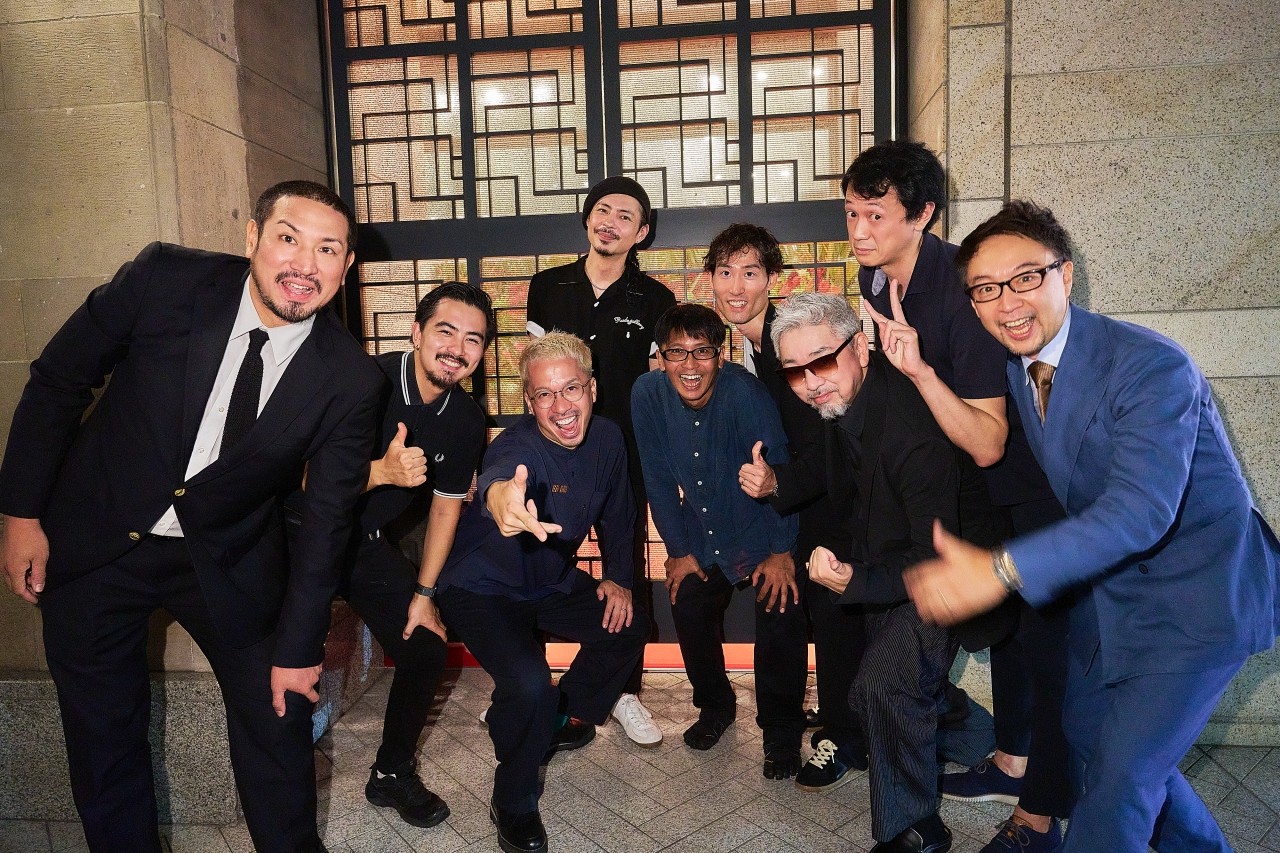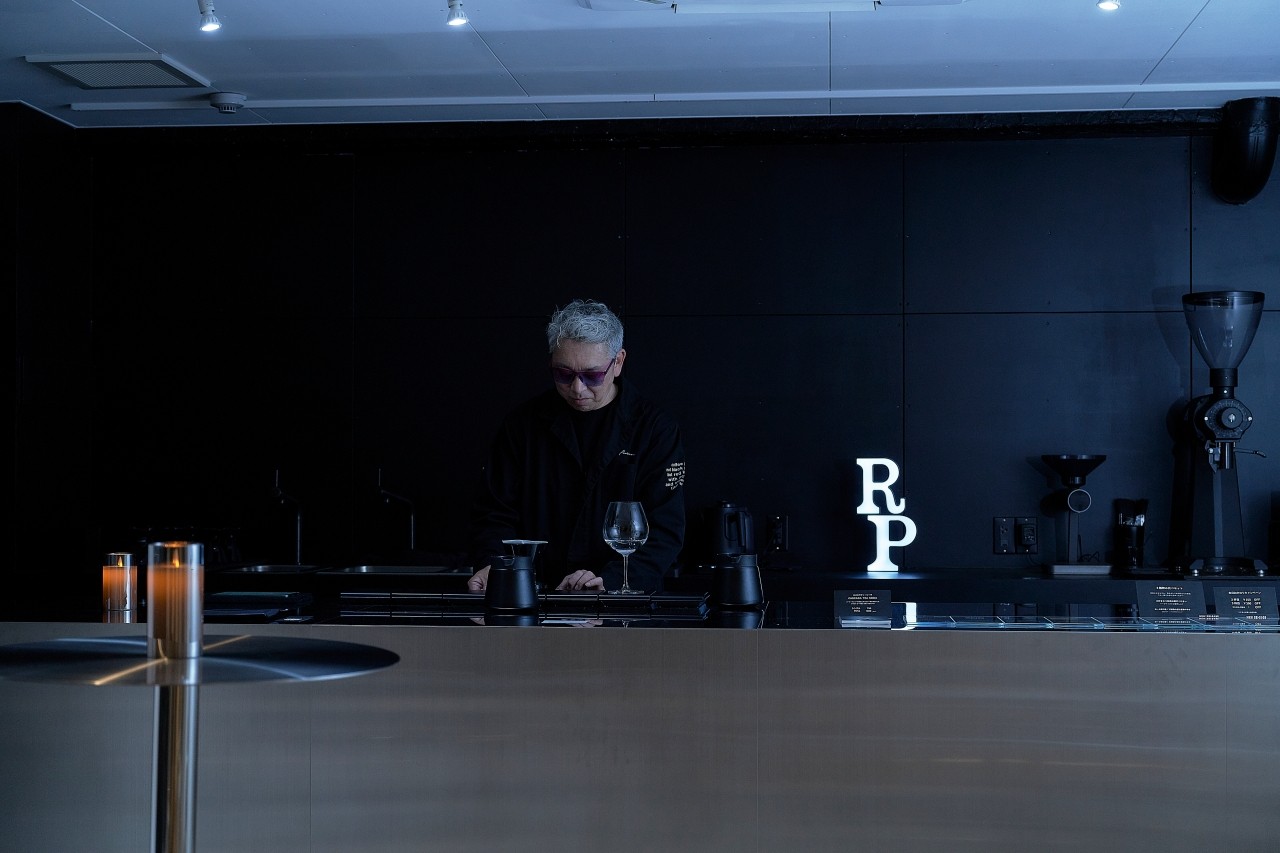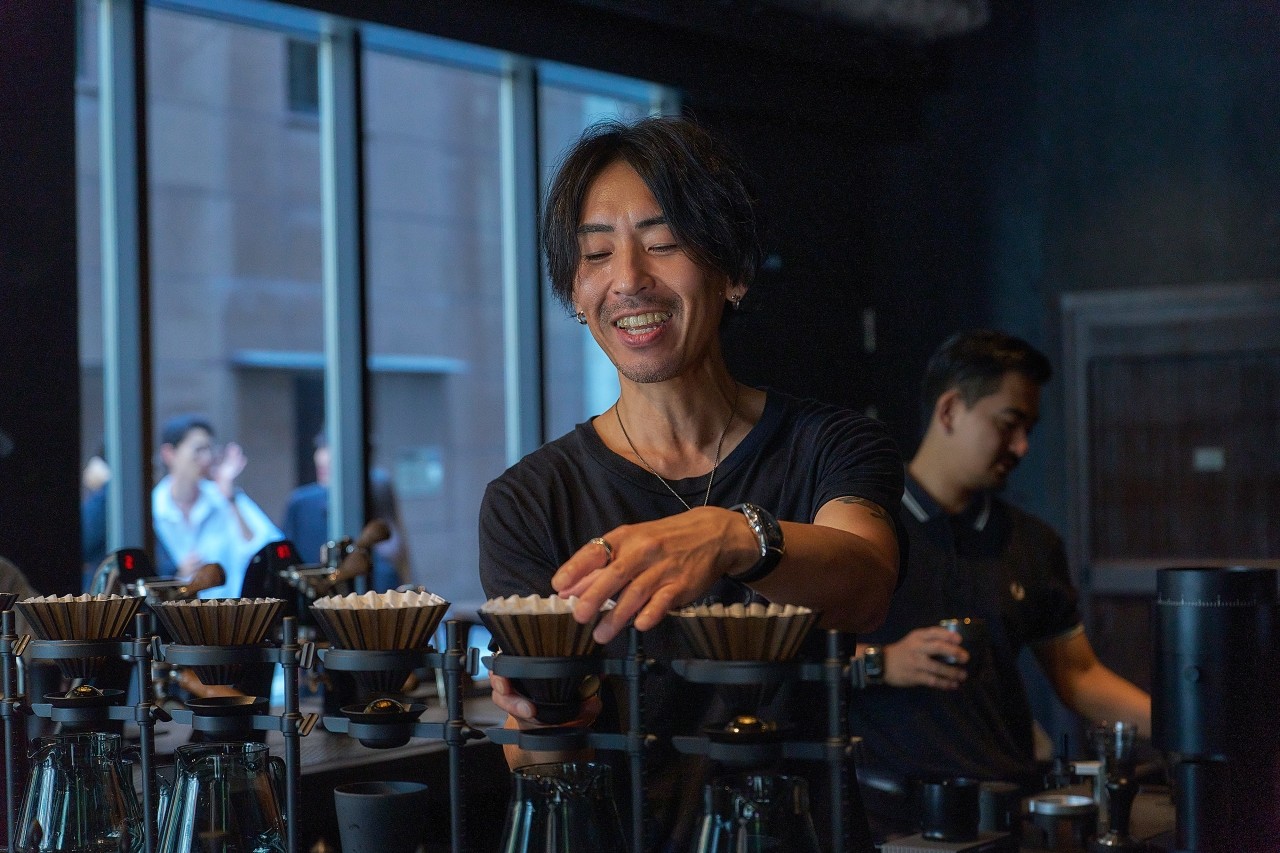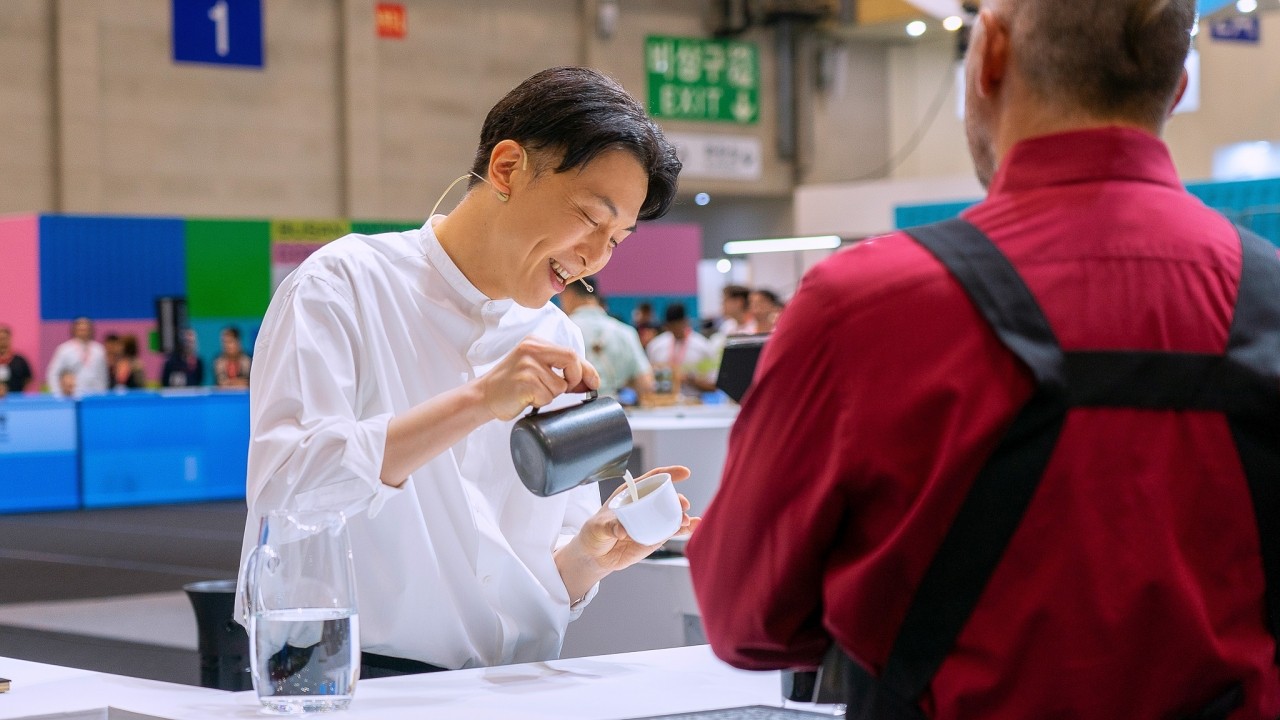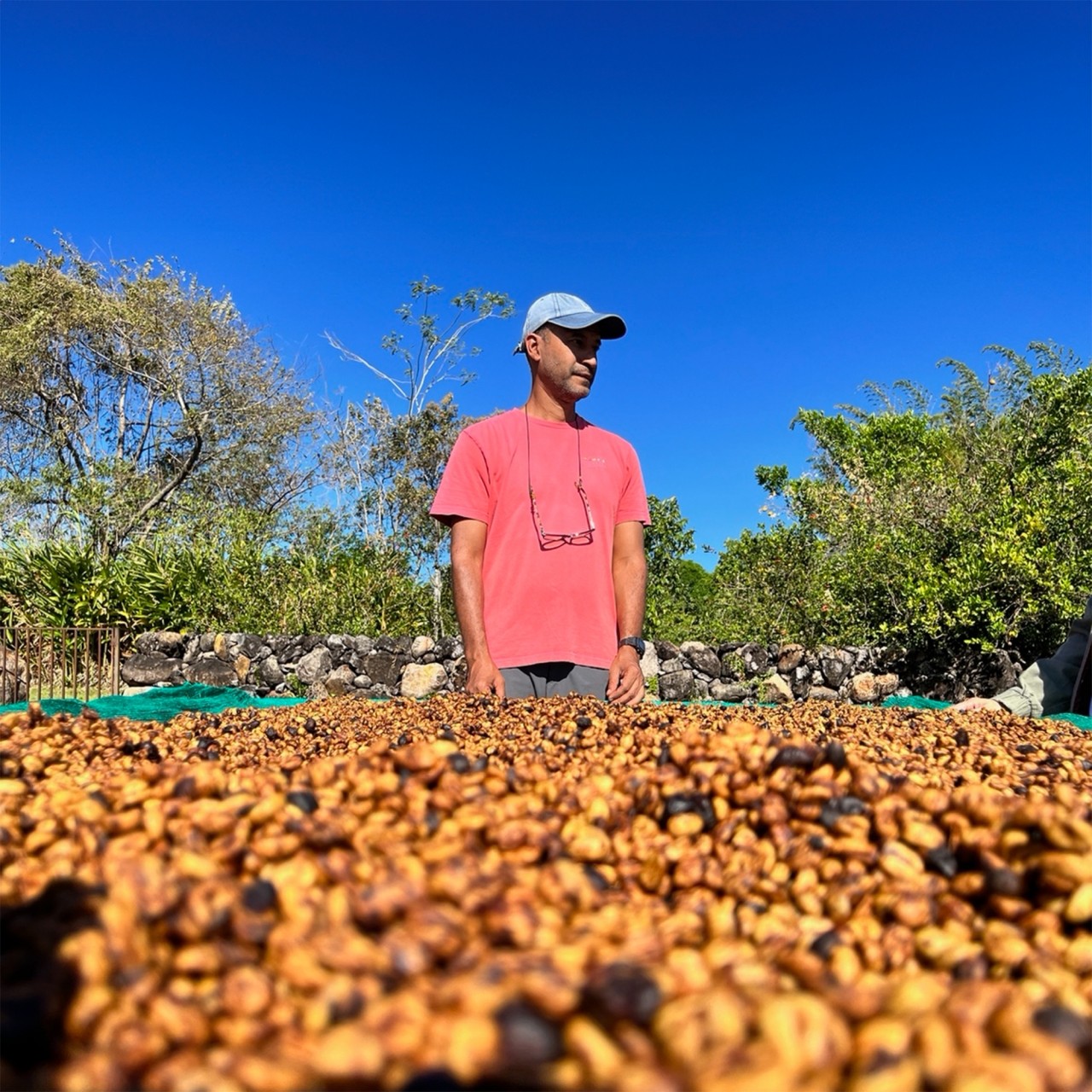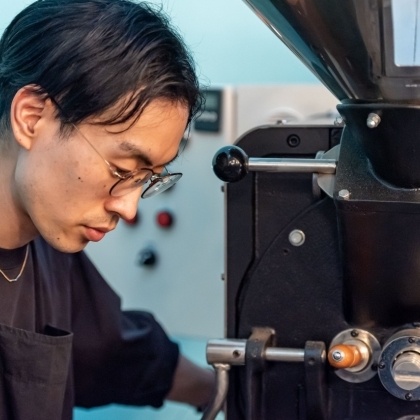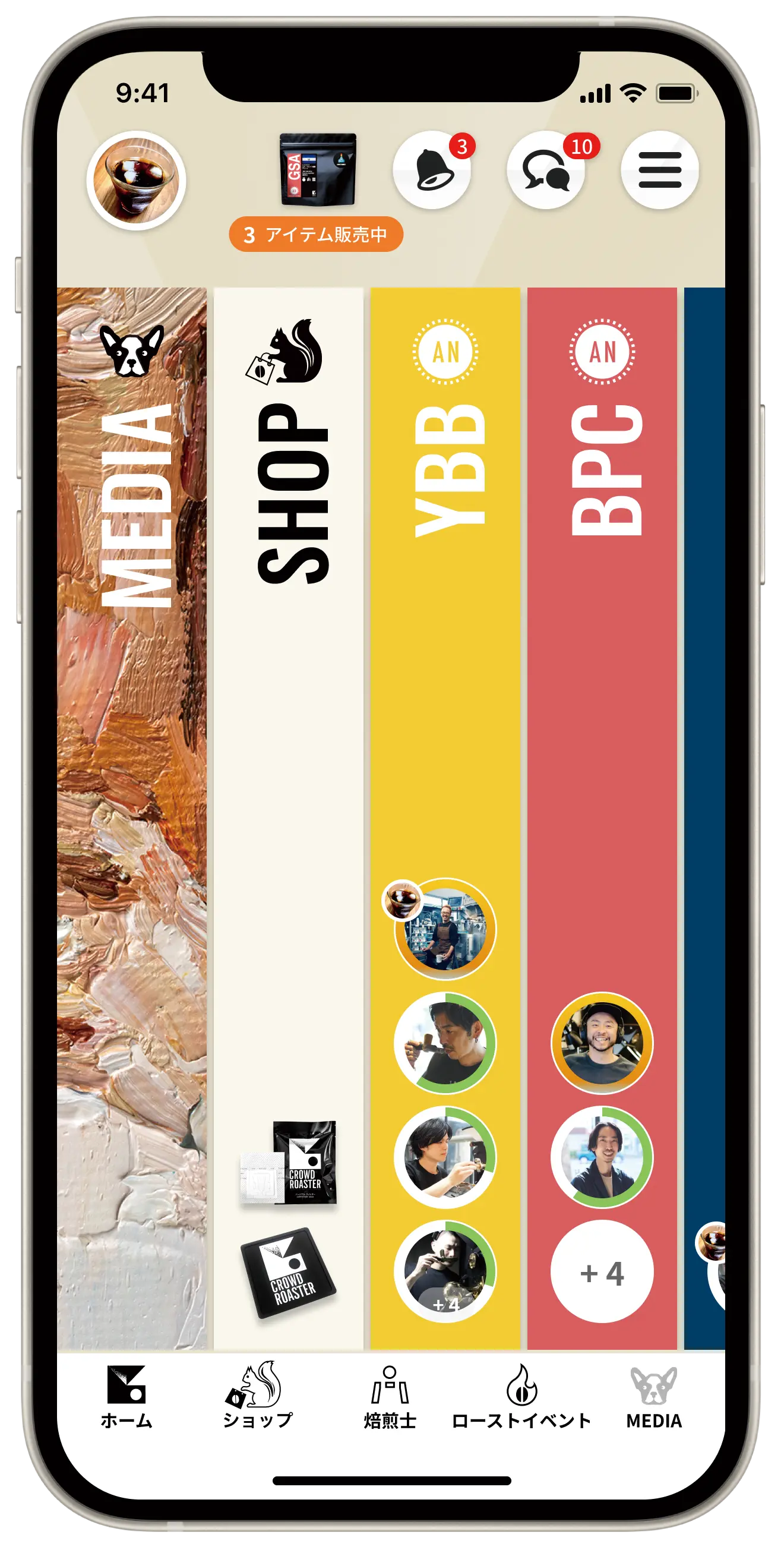Does AI judge taste? ! Interview with an AI professor who is a future prediction expert and coffee lover about AI taste judgment technology!
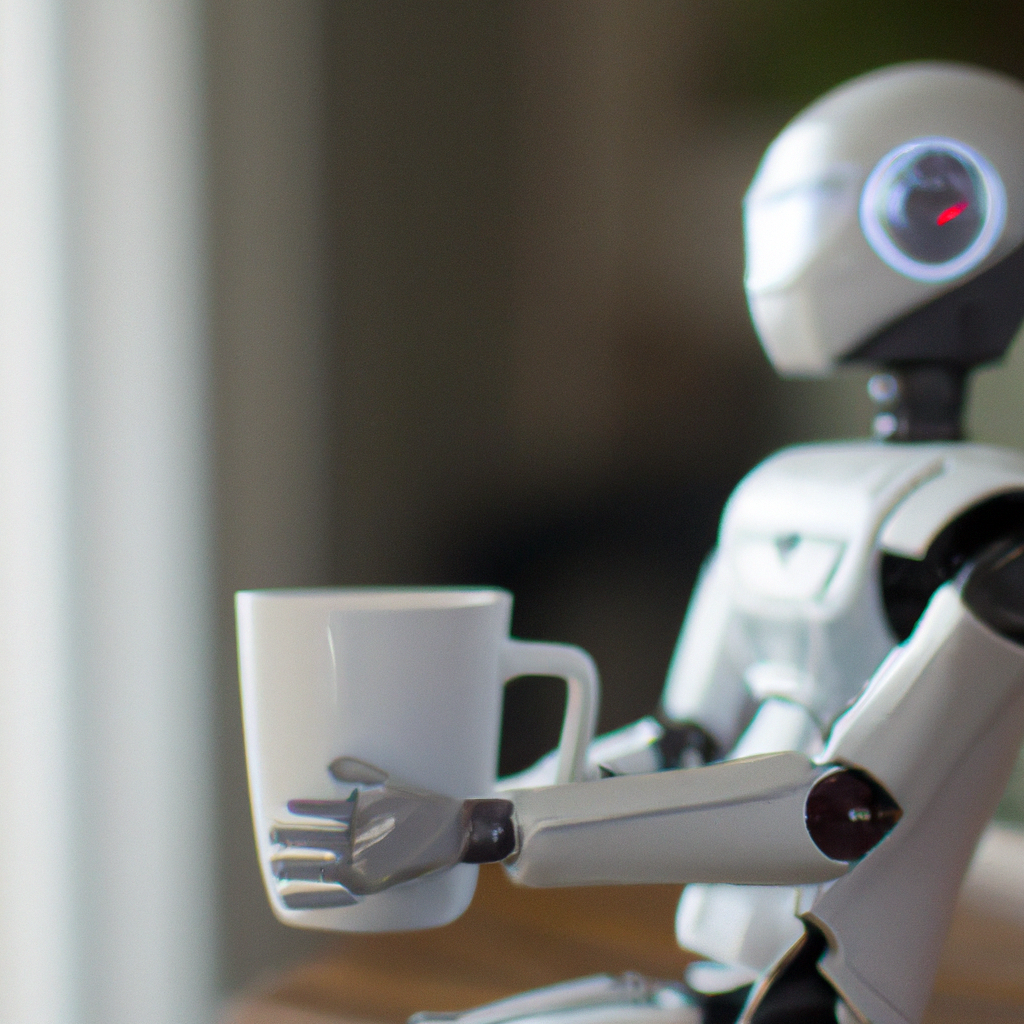
In the future, AI may be able to make taste judgments in the same way as humans. This will make AI play an important role in evaluating the taste of coffee. So, we interviewed Professor AI, who is an expert in future predictions and a coffee lover, about AI taste judgment technology.
Editor: Hello, thank you for joining us today.
AI Professor: Hello, nice to meet you.
Editorial Department: We'd like to start right away. Could you please tell us three points that you think are important for future AI taste judgment technology?
AI Professor: Yes, the key points of AI taste judgment technology are as follows:
Editor: Hello, thank you for joining us today.
AI Professor: Hello, nice to meet you.
Editorial Department: We'd like to start right away. Could you please tell us three points that you think are important for future AI taste judgment technology?
AI Professor: Yes, the key points of AI taste judgment technology are as follows:
1. Highly accurate taste judgment
The important thing about AI taste judgment technology is its accuracy. Human taste is diverse, and since people have different tastes and preferences, there can be subtle differences in taste evaluations. AI is required to judge taste with high accuracy using statistical processing and machine Manabu .
2. Food quality control
AI taste judgment technology is also useful for food quality control. Raw materials, manufacturing processes, and quality control are important for products manufactured in the food industry. By utilizing AI, efficient and accurate quality control can be performed.
3. Innovation in the Food and Beverage Industry
As AI taste judgment technology evolves, it will become possible to provide new services and products in the food and beverage industry. For example, if AI were to be used to provide menus tailored to customer preferences, or to evaluate and rank restaurants, it could lead to more diverse dining styles and new value.
Above, I have described the important points of AI taste judgment technology.
Editorial Department: Thank you. Now, let's move on to the three points you just mentioned.
Above, I have described the important points of AI taste judgment technology.
Editorial Department: Thank you. Now, let's move on to the three points you just mentioned.
Objective taste judgment
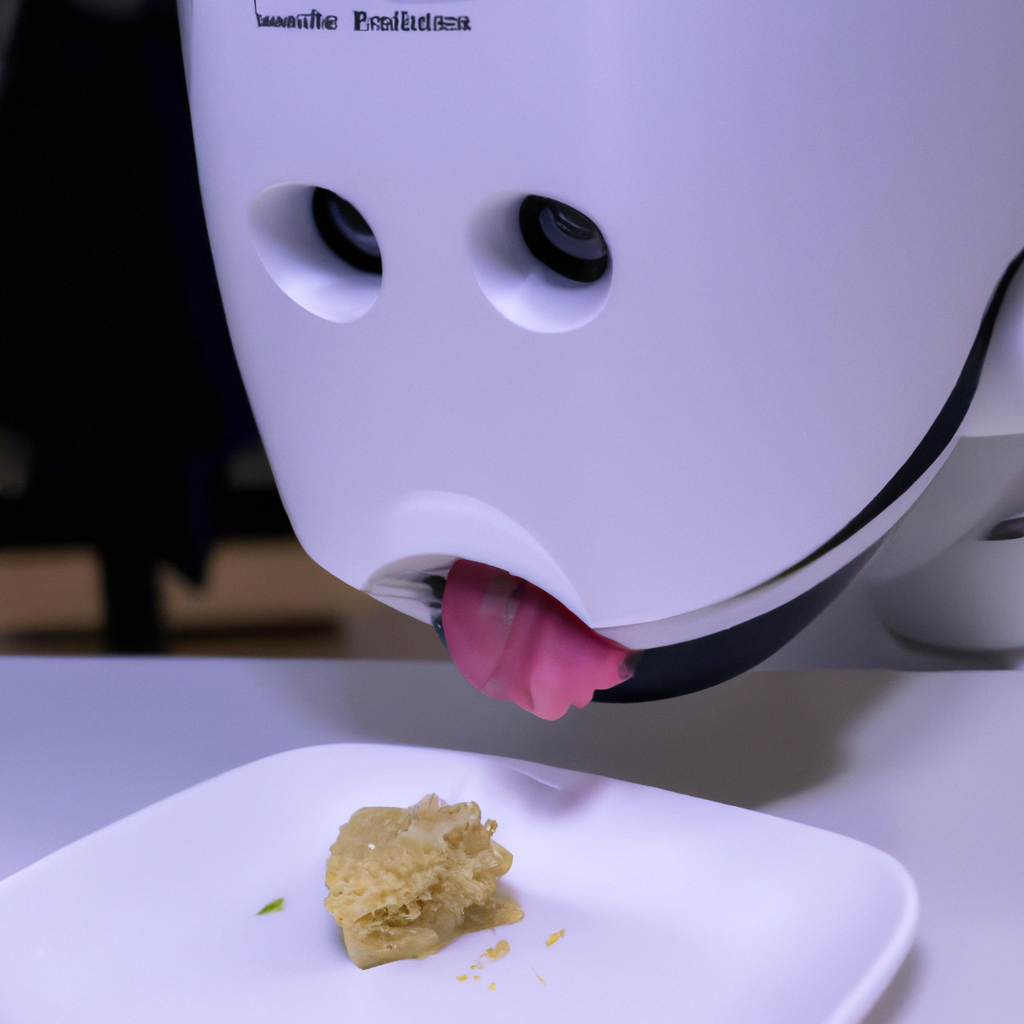
Editorial Department: First, let's talk about the accuracy of taste judgment. How does AI judge taste, unlike humans?
AI Professor: AI often collects and analyzes numerical data to judge taste. Numerical data on taste treats elements such as mouthfeel, astringency, sourness, sweetness, and saltiness as specific values. This data is then analyzed using machine Manabu and statistical methods to create a model for judging taste.
For example, data collection methods for taste judgment may include tests using taste sensors or data from human taste judgment results. AI may also Manabu data on taste and smell and use that information to make inferences about taste. AI can process huge amounts of data at high speed and find complex patterns, so it can generally make more accurate taste judgments than humans.
Editor: So the difference is that humans are based on intuition, while AI is based on statistics from huge amounts of data?
AI Professor: Yes, that's right. Human taste is judged based on information sensed by the brain. On the other hand, AI taste judgment is based on Manabu a huge number of patterns and judging based on the results. Human taste is based on sensation and experience and has subjective elements, but AI taste judgment has a strong objective element based on data, which leads to improved accuracy. However, in situations where the subjectivity of human taste is key, AI may not be able to cover it all, so human judgment will also play an important role.
Editor: Objectivity seems to be a very important keyword. Does this objectivity mean that AI's taste judgments will be more convincing to many people?
AI Professor: Yes, that's right. AI taste judgments tend to be highly objective and have little individual variation. This makes it possible to obtain a common evaluation that many people can agree on, which is also useful in terms of business. For example, by utilizing AI taste judgments in product quality control and taste testing in the food industry, and understanding the taste trends desired by consumers, it is believed that more effective decision-making can be achieved.
Editorial Department: This leads us to our next point, but before that, will AI's taste judgment be important when it comes to coffee?
AI Professor: Yes, AI taste judgment is also important for coffee. The taste of coffee varies depending on the type, roasting method, brewing method, etc., and judging the taste is difficult, so AI taste judgment is being introduced into coffee quality control.
For example, one coffee brand has developed a coffee taste analysis technology that uses AI and is using it for coffee quality control, in-store serving, and customer recommendations. Because AI analyzes large amounts of data, it has a wealth of knowledge from the coffee information accumulated in the database and can accurately recognize the taste and aroma of various types of coffee.
AI taste assessment technology can also help evaluate coffee specifications, such as profiling the taste of specific coffee beans or blends, which will allow for a wider variety of coffees to be offered and more precise quality control, making it a valuable technology for coffee lovers.
Editorial Department: I see. It seems like there are many possibilities for AI taste judgment technology. For example, do you think we might see AI acting as human judges at various coffee competitions in the future?
AI Professor: That's a possibility. Currently, coffee competitions are mainly judged by humans, but if technology is established that allows AI to accurately evaluate coffee based on evaluation criteria such as taste and aroma, coffee competitions with AI as judges may become a reality.
In addition, using AI to perform taste judgments can produce more efficient and accurate results, potentially eliminating the need for personnel to train their tongues and reducing costs.
AI taste judgment technology is attracting attention not only in coffee competitions but also in the food and beverage industry in general, and is expected to become even more popular in the future.
Editor: That sounds like an exciting future.
AI Professor: AI often collects and analyzes numerical data to judge taste. Numerical data on taste treats elements such as mouthfeel, astringency, sourness, sweetness, and saltiness as specific values. This data is then analyzed using machine Manabu and statistical methods to create a model for judging taste.
For example, data collection methods for taste judgment may include tests using taste sensors or data from human taste judgment results. AI may also Manabu data on taste and smell and use that information to make inferences about taste. AI can process huge amounts of data at high speed and find complex patterns, so it can generally make more accurate taste judgments than humans.
Editor: So the difference is that humans are based on intuition, while AI is based on statistics from huge amounts of data?
AI Professor: Yes, that's right. Human taste is judged based on information sensed by the brain. On the other hand, AI taste judgment is based on Manabu a huge number of patterns and judging based on the results. Human taste is based on sensation and experience and has subjective elements, but AI taste judgment has a strong objective element based on data, which leads to improved accuracy. However, in situations where the subjectivity of human taste is key, AI may not be able to cover it all, so human judgment will also play an important role.
Editor: Objectivity seems to be a very important keyword. Does this objectivity mean that AI's taste judgments will be more convincing to many people?
AI Professor: Yes, that's right. AI taste judgments tend to be highly objective and have little individual variation. This makes it possible to obtain a common evaluation that many people can agree on, which is also useful in terms of business. For example, by utilizing AI taste judgments in product quality control and taste testing in the food industry, and understanding the taste trends desired by consumers, it is believed that more effective decision-making can be achieved.
Editorial Department: This leads us to our next point, but before that, will AI's taste judgment be important when it comes to coffee?
AI Professor: Yes, AI taste judgment is also important for coffee. The taste of coffee varies depending on the type, roasting method, brewing method, etc., and judging the taste is difficult, so AI taste judgment is being introduced into coffee quality control.
For example, one coffee brand has developed a coffee taste analysis technology that uses AI and is using it for coffee quality control, in-store serving, and customer recommendations. Because AI analyzes large amounts of data, it has a wealth of knowledge from the coffee information accumulated in the database and can accurately recognize the taste and aroma of various types of coffee.
AI taste assessment technology can also help evaluate coffee specifications, such as profiling the taste of specific coffee beans or blends, which will allow for a wider variety of coffees to be offered and more precise quality control, making it a valuable technology for coffee lovers.
Editorial Department: I see. It seems like there are many possibilities for AI taste judgment technology. For example, do you think we might see AI acting as human judges at various coffee competitions in the future?
AI Professor: That's a possibility. Currently, coffee competitions are mainly judged by humans, but if technology is established that allows AI to accurately evaluate coffee based on evaluation criteria such as taste and aroma, coffee competitions with AI as judges may become a reality.
In addition, using AI to perform taste judgments can produce more efficient and accurate results, potentially eliminating the need for personnel to train their tongues and reducing costs.
AI taste judgment technology is attracting attention not only in coffee competitions but also in the food and beverage industry in general, and is expected to become even more popular in the future.
Editor: That sounds like an exciting future.
Streamlining quality control
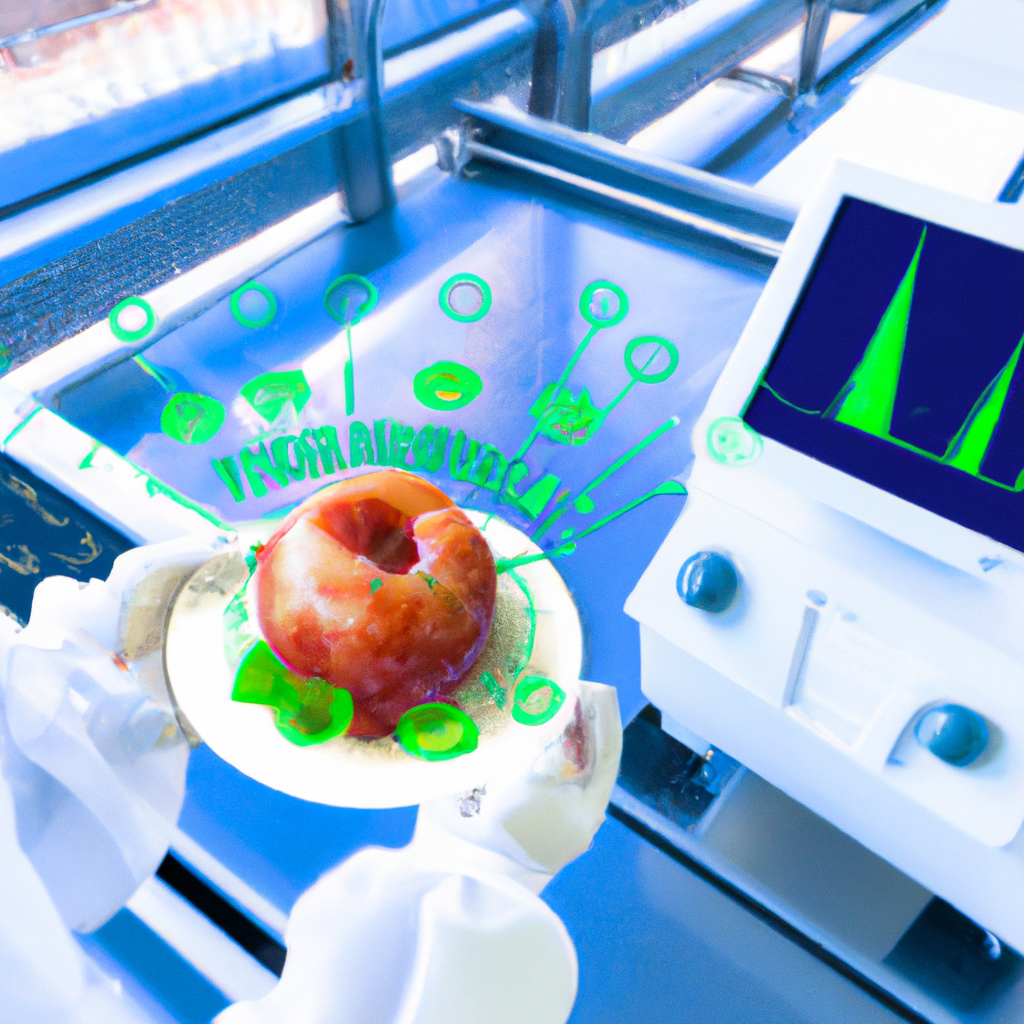
Editor: Moving on to the second point, quality control, as you've been saying, it seems that efficiency is a major benefit of AI.
AI Professor: Yes, AI taste judgment technology will greatly contribute to the efficiency of quality control. Quality control in restaurants and other establishments traditionally required manual inspection and checking, but with automatic judgment by AI, quality control can be carried out more quickly and accurately.
By having AI handle tasks such as identifying tastes, detecting quality deviations, monitoring improper storage and processing, and developing new products, it will be possible to dramatically reduce the amount of work that is previously required, thereby contributing to cost reduction.
In addition, having AI take charge of quality control can prevent human error. While humans can make mistakes by repeatedly performing the same tasks, AI can carry out tasks for long periods of time while maintaining a certain level of accuracy.
AI taste judgment technology can lead to improved quality and cost reduction, making it extremely beneficial for the food and beverage industry.
Editor: So as a result, consumers will be able to get food of consistent quality at low prices?
AI Professor: Yes, we can expect such effects. Quality control by AI can reduce costs and improve quality by controlling quality more efficiently and accurately. This could enable consumers to obtain food of stable quality at low prices.
In addition, advances in AI taste-judgment technology may make it easier for consumers to find foods that suit their tastes. AI can process large amounts of data and analyze taste quality, making it possible to understand consumer preferences and needs and develop and provide products that match them. This is expected to increase customer satisfaction and add value to the entire food and beverage industry.
Editorial Department: It seems like there are only good things about it - it's cheap, safe, and you can eat food that suits your tastes - but are there any drawbacks to this?
AI Professor: Yes, there are some potential disadvantages to AI taste judgment technology. First, it is necessary to collect a large amount of data for AI to judge taste, which may give rise to privacy and personal information protection issues. Appropriate data management and measures to protect personal information are required.
In addition, as AI taste assessment technology evolves, it is possible that certain food manufacturers and brands will have an overwhelming advantage, which could lead to biased market competition and limited consumer choice. Therefore, it is necessary to give due consideration to maintaining the principle of fair competition.
AI-based taste assessment technology can be extremely useful for efficient and accurate quality control and product development, but it also requires appropriate management, care, and monitoring.
Editor: We need to be very careful about that. Is there any way to solve these disadvantages?
AI Professor: With regard to issues of data privacy and personal information protection, it is necessary to establish and monitor regulations, disciplines, and guidelines regarding data management and use. In addition, when using AI, it is necessary to fully explain how data, including personal information, will be handled and consent must be obtained.
It is necessary to maintain sufficient competitive principles to address the issues of bias in market competition and limited consumer choice. In order to promote competition, it is necessary to develop systems and measures that allow fair use of AI technology. In addition, it is necessary to respond to the diversity and needs of consumers' choices in product development and provision promoted by AI technology. The entire industry needs to grasp consumer and market trends, maximize the benefits of AI technology, and set appropriate rules and measures to resolve problems.
Editor: I see. If these problems can be overcome, the benefits of AI, such as stable quality and low cost, will likely be maintained. Can the same be said about the coffee industry?
AI Professor: Yes, the same thing can be said. With AI taste judgment technology, coffee quality control can be carried out more efficiently and accurately, improving quality and reducing costs, making it possible to provide coffee consumers with cheap and stable quality. In addition, analysis of coffee preferences and quality using AI will lead to the development and provision of products tailored to consumer tastes, which is expected to lead to the formation of a more diverse coffee culture.
However, problems may arise with data processing and analysis using AI, so appropriate management and monitoring of data processing and analysis is necessary. The use of AI technology is expected to improve productivity and efficiency in the coffee industry, but at the same time, coffee producers, consumers, and companies around the world need to work together to realize a fair and sustainable coffee industry.
AI Professor: Yes, AI taste judgment technology will greatly contribute to the efficiency of quality control. Quality control in restaurants and other establishments traditionally required manual inspection and checking, but with automatic judgment by AI, quality control can be carried out more quickly and accurately.
By having AI handle tasks such as identifying tastes, detecting quality deviations, monitoring improper storage and processing, and developing new products, it will be possible to dramatically reduce the amount of work that is previously required, thereby contributing to cost reduction.
In addition, having AI take charge of quality control can prevent human error. While humans can make mistakes by repeatedly performing the same tasks, AI can carry out tasks for long periods of time while maintaining a certain level of accuracy.
AI taste judgment technology can lead to improved quality and cost reduction, making it extremely beneficial for the food and beverage industry.
Editor: So as a result, consumers will be able to get food of consistent quality at low prices?
AI Professor: Yes, we can expect such effects. Quality control by AI can reduce costs and improve quality by controlling quality more efficiently and accurately. This could enable consumers to obtain food of stable quality at low prices.
In addition, advances in AI taste-judgment technology may make it easier for consumers to find foods that suit their tastes. AI can process large amounts of data and analyze taste quality, making it possible to understand consumer preferences and needs and develop and provide products that match them. This is expected to increase customer satisfaction and add value to the entire food and beverage industry.
Editorial Department: It seems like there are only good things about it - it's cheap, safe, and you can eat food that suits your tastes - but are there any drawbacks to this?
AI Professor: Yes, there are some potential disadvantages to AI taste judgment technology. First, it is necessary to collect a large amount of data for AI to judge taste, which may give rise to privacy and personal information protection issues. Appropriate data management and measures to protect personal information are required.
In addition, as AI taste assessment technology evolves, it is possible that certain food manufacturers and brands will have an overwhelming advantage, which could lead to biased market competition and limited consumer choice. Therefore, it is necessary to give due consideration to maintaining the principle of fair competition.
AI-based taste assessment technology can be extremely useful for efficient and accurate quality control and product development, but it also requires appropriate management, care, and monitoring.
Editor: We need to be very careful about that. Is there any way to solve these disadvantages?
AI Professor: With regard to issues of data privacy and personal information protection, it is necessary to establish and monitor regulations, disciplines, and guidelines regarding data management and use. In addition, when using AI, it is necessary to fully explain how data, including personal information, will be handled and consent must be obtained.
It is necessary to maintain sufficient competitive principles to address the issues of bias in market competition and limited consumer choice. In order to promote competition, it is necessary to develop systems and measures that allow fair use of AI technology. In addition, it is necessary to respond to the diversity and needs of consumers' choices in product development and provision promoted by AI technology. The entire industry needs to grasp consumer and market trends, maximize the benefits of AI technology, and set appropriate rules and measures to resolve problems.
Editor: I see. If these problems can be overcome, the benefits of AI, such as stable quality and low cost, will likely be maintained. Can the same be said about the coffee industry?
AI Professor: Yes, the same thing can be said. With AI taste judgment technology, coffee quality control can be carried out more efficiently and accurately, improving quality and reducing costs, making it possible to provide coffee consumers with cheap and stable quality. In addition, analysis of coffee preferences and quality using AI will lead to the development and provision of products tailored to consumer tastes, which is expected to lead to the formation of a more diverse coffee culture.
However, problems may arise with data processing and analysis using AI, so appropriate management and monitoring of data processing and analysis is necessary. The use of AI technology is expected to improve productivity and efficiency in the coffee industry, but at the same time, coffee producers, consumers, and companies around the world need to work together to realize a fair and sustainable coffee industry.
Innovation and diversity in the food and beverage industry
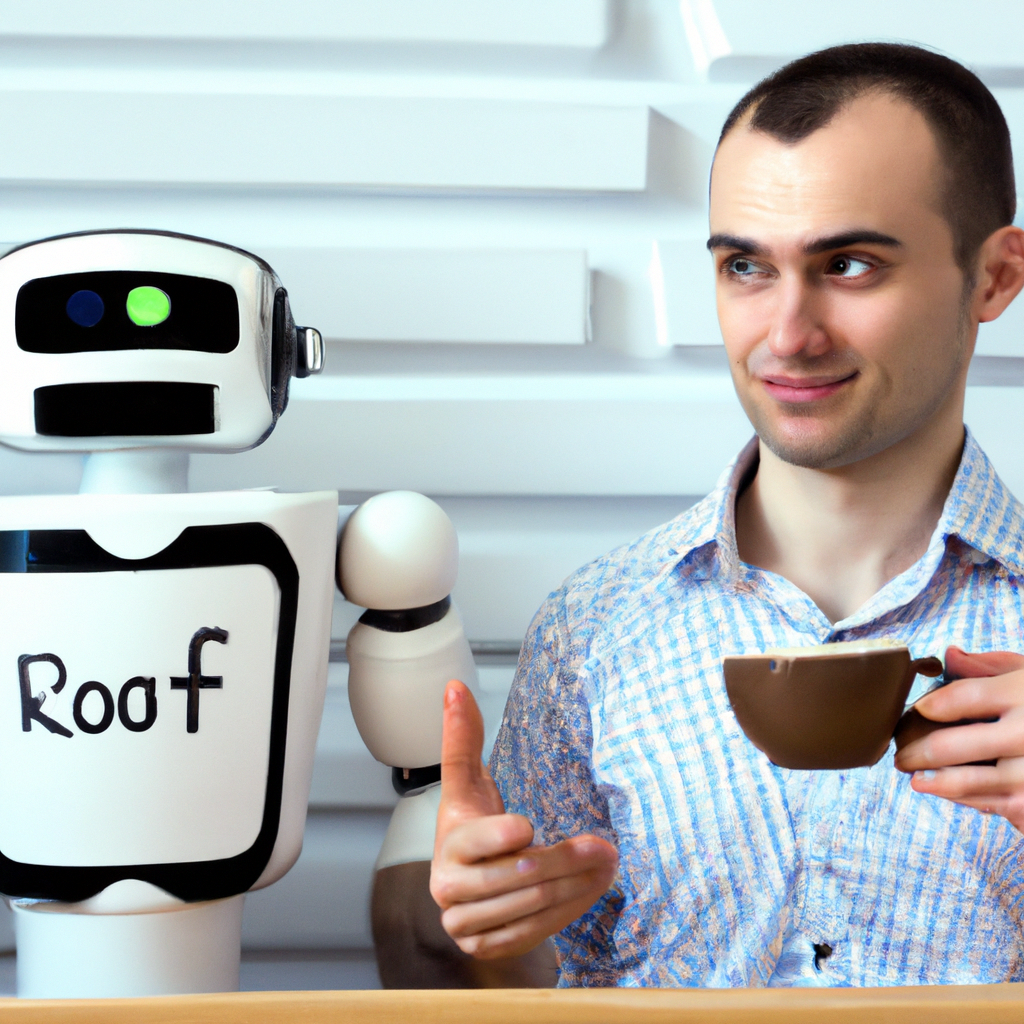
Editor: Finally, the third point is about the innovation in the food and beverage industry that will be brought about by these results. As you mentioned, diversity seems to be the keyword for this innovation. What specific services can you imagine?
AI Professor: Several services that utilize AI taste-judgment technology are attracting attention as innovations in the food and beverage industry. For example, the following are some of them:
AI Professor: Several services that utilize AI taste-judgment technology are attracting attention as innovations in the food and beverage industry. For example, the following are some of them:
・AI-based ordering support
AI can suggest menu items that customers are likely to like based on past order data, etc. AI suggestions will be particularly effective when a customer is visiting the restaurant for the first time. Therefore, by introducing ordering support using AI, it will be possible to make suggestions tailored to each individual customer, further improving the quality of service.
・Development of new menu items selected by AI
It is possible to develop new delicious and nutritious menus selected by AI from a large number of recipes. AI analyzes nutritional components and ingredient combinations to select new menus. This saves time and effort that would be spent on trial and error.
・Smart post-order service using AI
AI can analyze customers' past order data and preferences to provide suggestions and menu recommendations, etc. It also helps to make service smarter and more efficient by optimizing order units, cooking timing, dish washing, etc.
AI-based taste judgment technology is expected to bring about improvements and innovations in services in the food and beverage industry. By utilizing the analytical capabilities of AI, it will be possible to provide completely new menus and services that have never been seen before.
Editorial Department: Does this mean that with the support of AI, products tailored to each individual will be provided without the consumer having to think about it?
AI Professor: Yes, by using AI taste judgment technology, restaurants can more accurately understand the tastes and preferences of customers and make suggestions. For example, even if customers order the same menu, the suggestions made by AI will reflect the customer's preferred flavor strength, spiciness, and quantity, so suggestions can be tailored to each individual. In addition, it will be possible to develop new menu items using AI's analytical capabilities, which is expected to lead to a greater variety of offerings.
Editorial Department: When you say new menu items, will there be combinations of ingredients that have never been tried before?
AI Professor: Yes, AI taste judgment technology can also discover new combinations of ingredients. AI can analyze large amounts of recipe and ingredient data to discover new dish menus and ingredient combinations that humans would never have imagined. For example, even if an ingredient combination is not commonly thought of, AI can determine that it is delicious by analyzing the balance and compatibility of its flavors. This is expected to lead to the discovery and provision of new food cultures. However, when providing new menus and ingredients, sufficient consideration must be given to food safety.
Editor: It seems like it would be interesting to combine ingredients that we don't normally think of. For example, if it were coffee, what kind of combinations would you make?
AI Professor: The drinks and beverages suggested by AI can include combinations that are hard to think of in general. In the case of coffee, I think the following combinations are interesting:
AI-based taste judgment technology is expected to bring about improvements and innovations in services in the food and beverage industry. By utilizing the analytical capabilities of AI, it will be possible to provide completely new menus and services that have never been seen before.
Editorial Department: Does this mean that with the support of AI, products tailored to each individual will be provided without the consumer having to think about it?
AI Professor: Yes, by using AI taste judgment technology, restaurants can more accurately understand the tastes and preferences of customers and make suggestions. For example, even if customers order the same menu, the suggestions made by AI will reflect the customer's preferred flavor strength, spiciness, and quantity, so suggestions can be tailored to each individual. In addition, it will be possible to develop new menu items using AI's analytical capabilities, which is expected to lead to a greater variety of offerings.
Editorial Department: When you say new menu items, will there be combinations of ingredients that have never been tried before?
AI Professor: Yes, AI taste judgment technology can also discover new combinations of ingredients. AI can analyze large amounts of recipe and ingredient data to discover new dish menus and ingredient combinations that humans would never have imagined. For example, even if an ingredient combination is not commonly thought of, AI can determine that it is delicious by analyzing the balance and compatibility of its flavors. This is expected to lead to the discovery and provision of new food cultures. However, when providing new menus and ingredients, sufficient consideration must be given to food safety.
Editor: It seems like it would be interesting to combine ingredients that we don't normally think of. For example, if it were coffee, what kind of combinations would you make?
AI Professor: The drinks and beverages suggested by AI can include combinations that are hard to think of in general. In the case of coffee, I think the following combinations are interesting:
・Coffee and herbs
For example, you can add spices and herbs, such as peppermint or rosemary, to your coffee to neutralize the bitterness and acidity of the coffee, giving it a smoother taste.
・Coffee and fresh cream
You can also add cream to your coffee and drink it as is. This combination makes the bitterness of the coffee and the sweetness of the cream go well together, creating a creamy taste.
・Coffee and fruit juice
For example, you can add fruit juice, such as orange juice or grapefruit juice, to your coffee. The bitterness of the coffee goes well with the acidity and sweetness of the fruity juice, creating a refreshing taste.
By using AI taste judgment technology, it may be possible to bring out new appeal in coffee from these unusual combinations.
Editorial Department: I see. Thank you very much.
By using AI taste judgment technology, it may be possible to bring out new appeal in coffee from these unusual combinations.
Editorial Department: I see. Thank you very much.
The future of the coffee industry
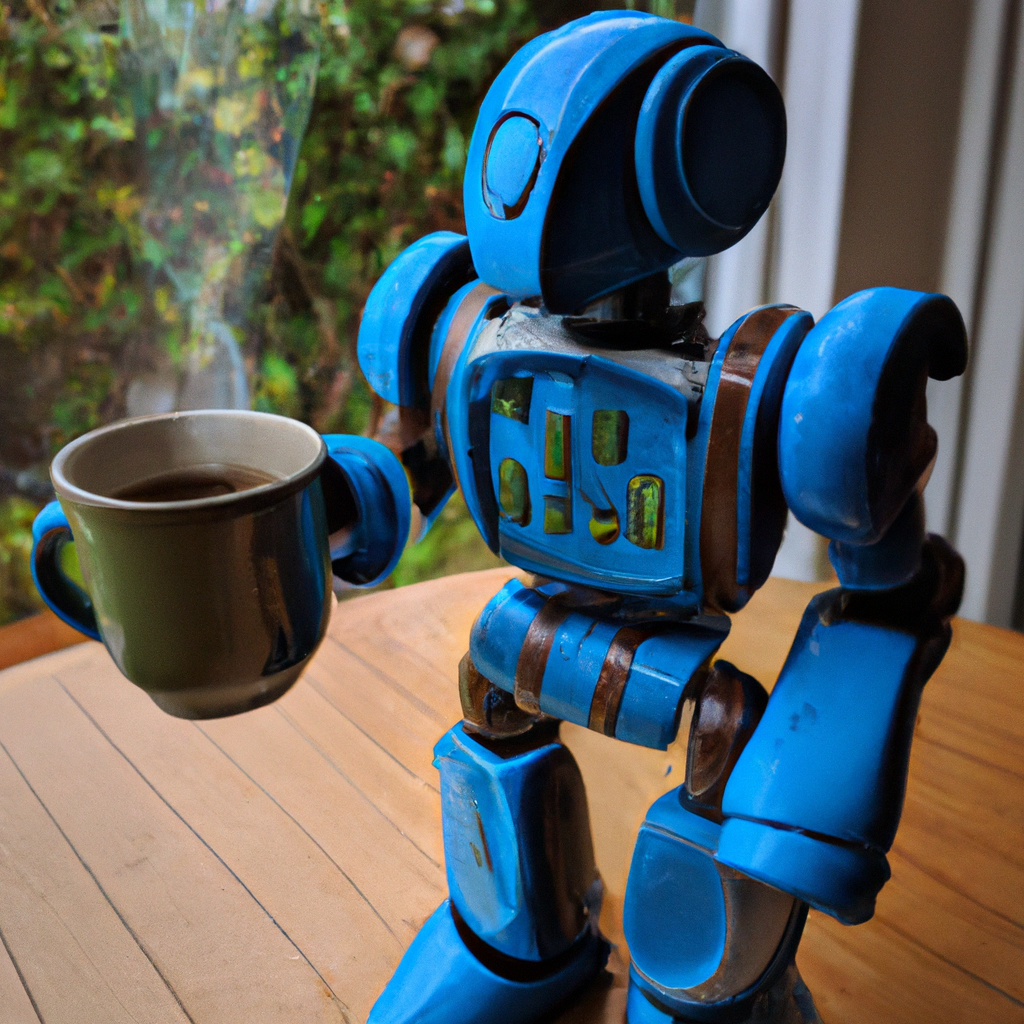
Editor: Today, we learned about the objectivity, efficiency, and diversity of AI taste evaluation technology. Finally, as an expert in future predictions and a coffee lover, what do you think would be great for the future of the coffee industry?
AI Professor: As a future forecaster, here's what I would like to see in the future of the coffee industry:
AI Professor: As a future forecaster, here's what I would like to see in the future of the coffee industry:
・A world of coffee where AI and people coexist
As AI taste judgment technology evolves, it will be possible to provide coffee of more consistent quality, but at the same time, human sense and sensibility are still necessary to enjoy the aroma and flavor of coffee. We hope that the optimal menu and services provided by AI will raise consumer awareness of coffee while enjoying the coffee, and give birth to a new coffee culture.
・Sustainable coffee industry
Coffee is not only delicious, but it is also an important industry for coffee-producing countries around the world. However, the current situation is that improving the lives of coffee farmers and increasing their profitability is a challenge. To realize a sustainable coffee industry, fair and transparent transactions and companies that fulfill their social responsibility to protect the human rights of producers are required.
・Addressing environmental issues surrounding coffee
There are concerns that global climate change will have an impact on coffee production. In the future, environmentally friendly coffee production methods will attract attention, and it is expected that a sustainable coffee culture will spread in line with them.
This is the future of the coffee industry that I hope for. I hope that a new culture will emerge as technology evolves, and I hope that an environmentally friendly and sustainable coffee industry will be realized.
Editorial Department: I see, thank you for today, Professor!
AI Professor: Thank you very much for your time.
Editorial Department: We look forward to seeing you again next time.
AI Professor: Thank you for joining us next time. Looking forward to it!
This is the future of the coffee industry that I hope for. I hope that a new culture will emerge as technology evolves, and I hope that an environmentally friendly and sustainable coffee industry will be realized.
Editorial Department: I see, thank you for today, Professor!
AI Professor: Thank you very much for your time.
Editorial Department: We look forward to seeing you again next time.
AI Professor: Thank you for joining us next time. Looking forward to it!
-----
AI Professor Profile

Professor AI is a graduate of the Faculty Manabu Engineering at the Manabu of Tokyo and is active as a researcher specializing in future prediction. He has written many internationally acclaimed books and serves as chairman of the International Future Prediction Research Society. In addition to being a researcher, he is also a coffee lover and has won awards in multiple coffee competitions both in Japan and abroad as a professional blender who enjoys the finest coffee.
When I asked about the mysterious mug with an apron attached to it,
This is a coffee mug of the "space-time predictor" that I developed. Conventional prediction methods have difficulty intuitively grasping the changing space-time, and have been unable to prevent accidents or incidents. Using the space-time predictor that I developed, it is possible to quickly detect various phenomena and predict the future. The "apron" attached to the coffee mug has a special lens built in, and when a specific phenomenon is detected, a pattern that appears through the lens can be seen. It is said that by using this "apron," it is possible to see into the future.
That's what they say.
When I asked about the mysterious mug with an apron attached to it,
This is a coffee mug of the "space-time predictor" that I developed. Conventional prediction methods have difficulty intuitively grasping the changing space-time, and have been unable to prevent accidents or incidents. Using the space-time predictor that I developed, it is possible to quickly detect various phenomena and predict the future. The "apron" attached to the coffee mug has a special lens built in, and when a specific phenomenon is detected, a pattern that appears through the lens can be seen. It is said that by using this "apron," it is possible to see into the future.
That's what they say.
CROWD ROASTER +AI
----
*The interview statements, profile, headline, and images of the "AI Professor" in this article were generated through "CODE Spinna," an AI API wrapper developed exclusively by Solflare .
The people appearing in the text are fictional characters created by AI (artificial intelligence) and are not real people. Please note that the accuracy, credibility, and reliability of the information are uncertain. These are published without modification to respect the expression of the AI. However, the direction of generation and the content of the ideas are manually directed, so we do not waive the rights that arise as works of authorship or creative works. If you are interested in the ideas described in the article, we would like to cooperate and make them a reality. Please contact the editorial department.
The people appearing in the text are fictional characters created by AI (artificial intelligence) and are not real people. Please note that the accuracy, credibility, and reliability of the information are uncertain. These are published without modification to respect the expression of the AI. However, the direction of generation and the content of the ideas are manually directed, so we do not waive the rights that arise as works of authorship or creative works. If you are interested in the ideas described in the article, we would like to cooperate and make them a reality. Please contact the editorial department.
If you want to enjoy coffee more deeply
" CROWD ROASTER APP"
Manabu at CROWD ROASTER LOUNGE
・Push notifications for article updates・Full of original articles exclusive to CROWD ROASTER
・Direct links to detailed information about green beans and roasters
App-only features
- Choose green beans and roasters to create and participate in roasting events・CROWD ROASTER SHOP: Everything from beans to equipment is readily available
・GPS-linked coffee map function


